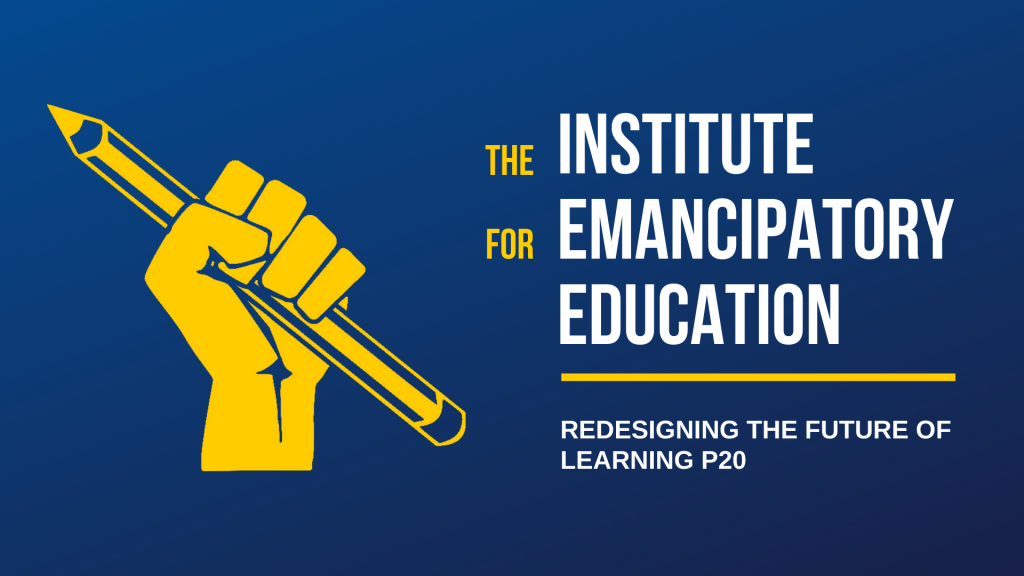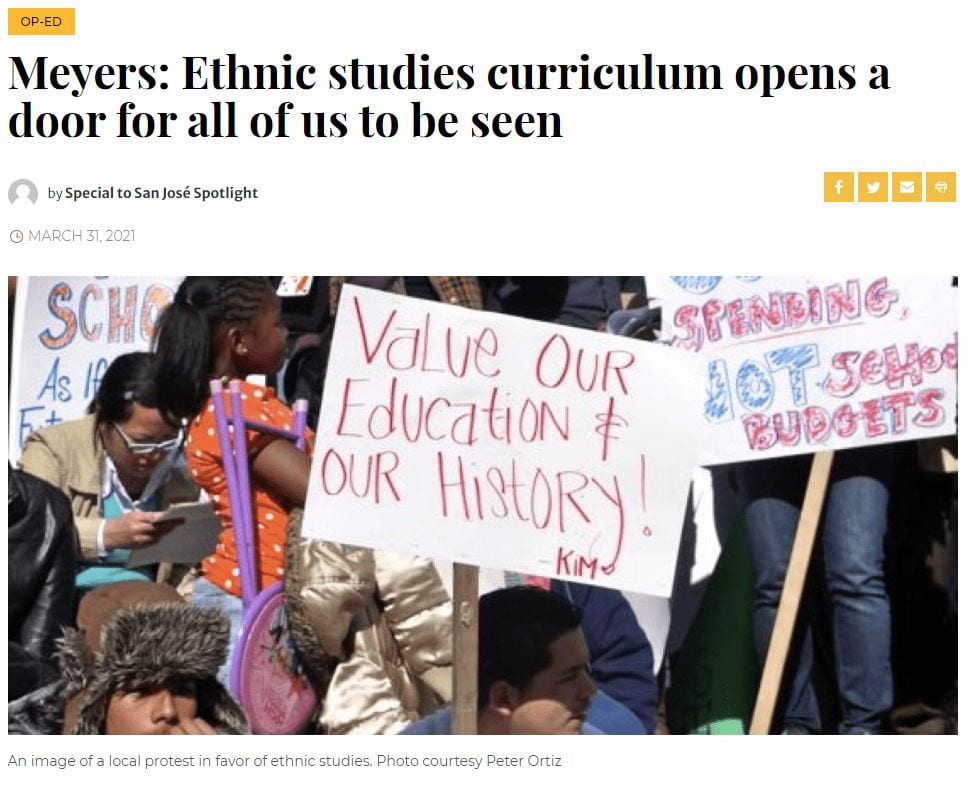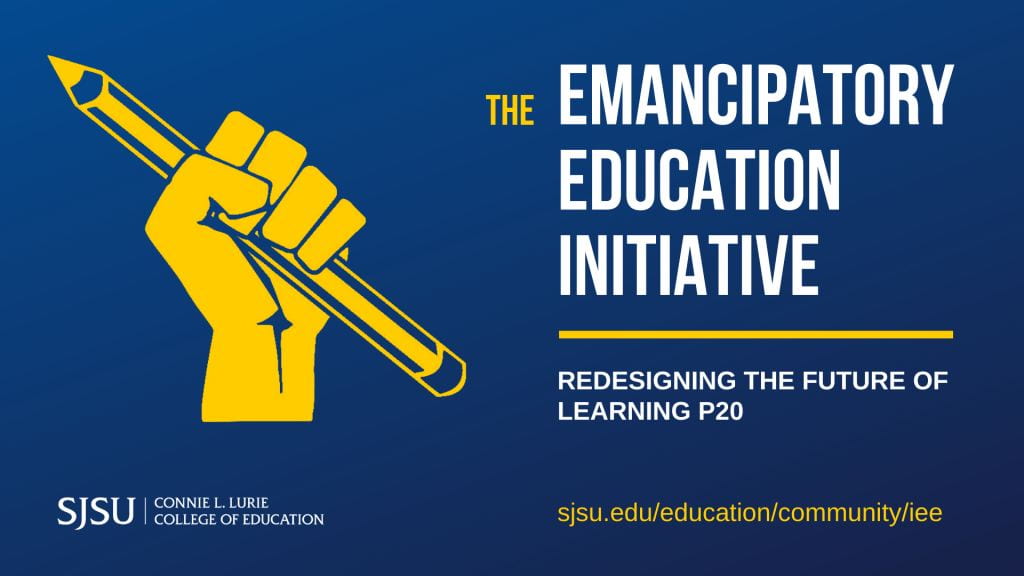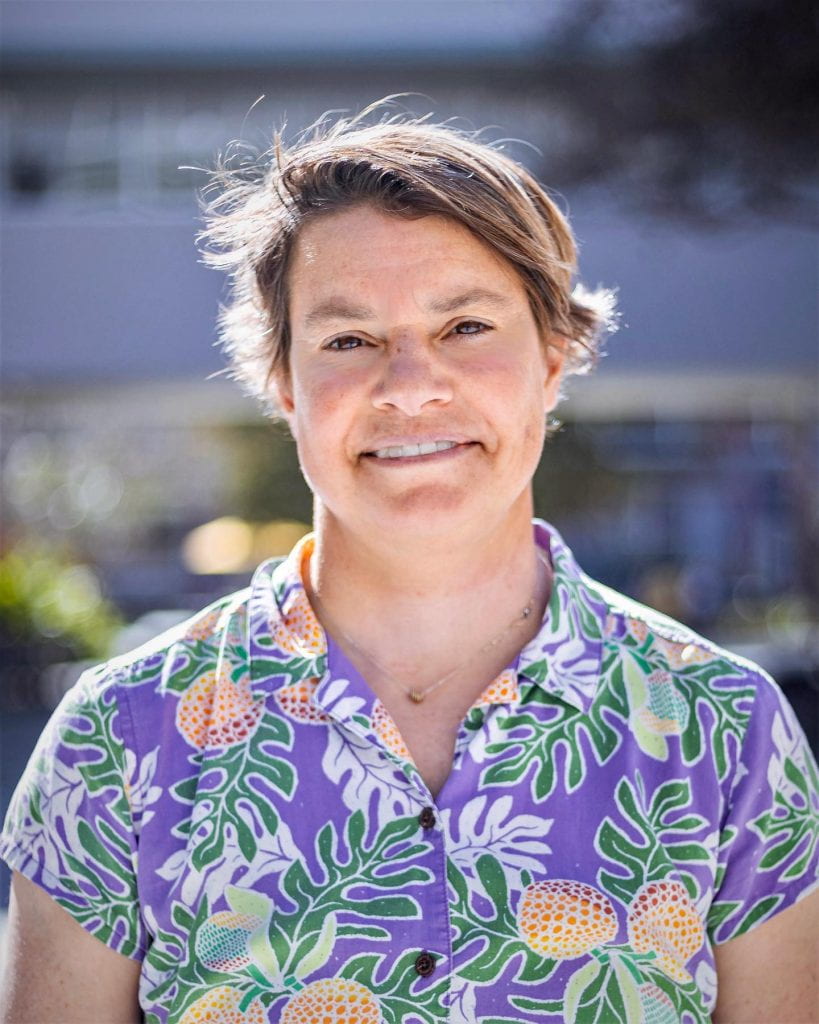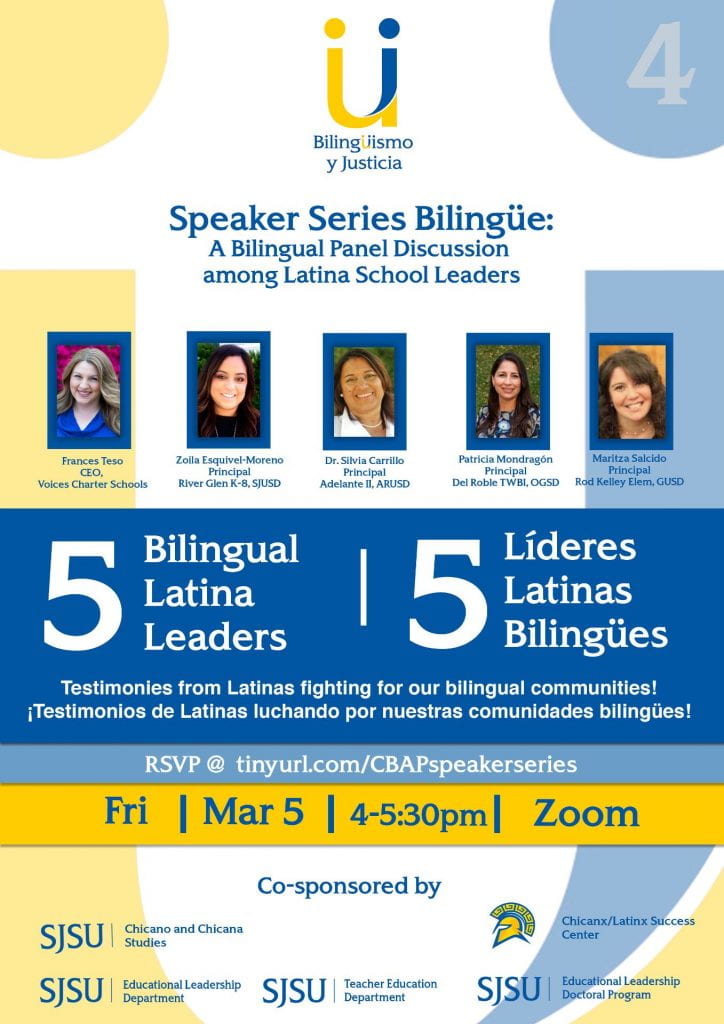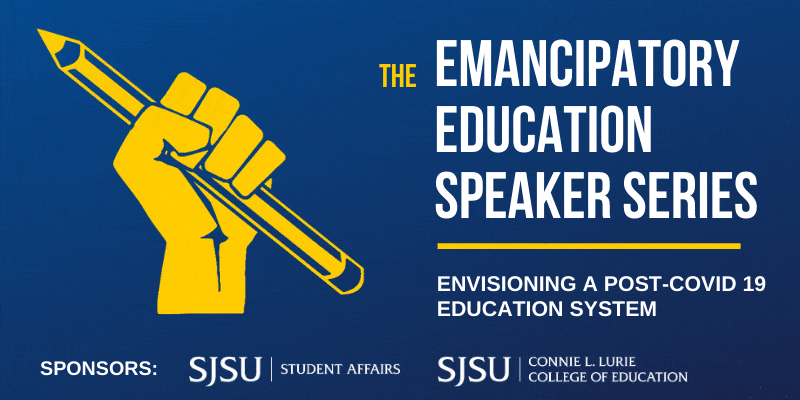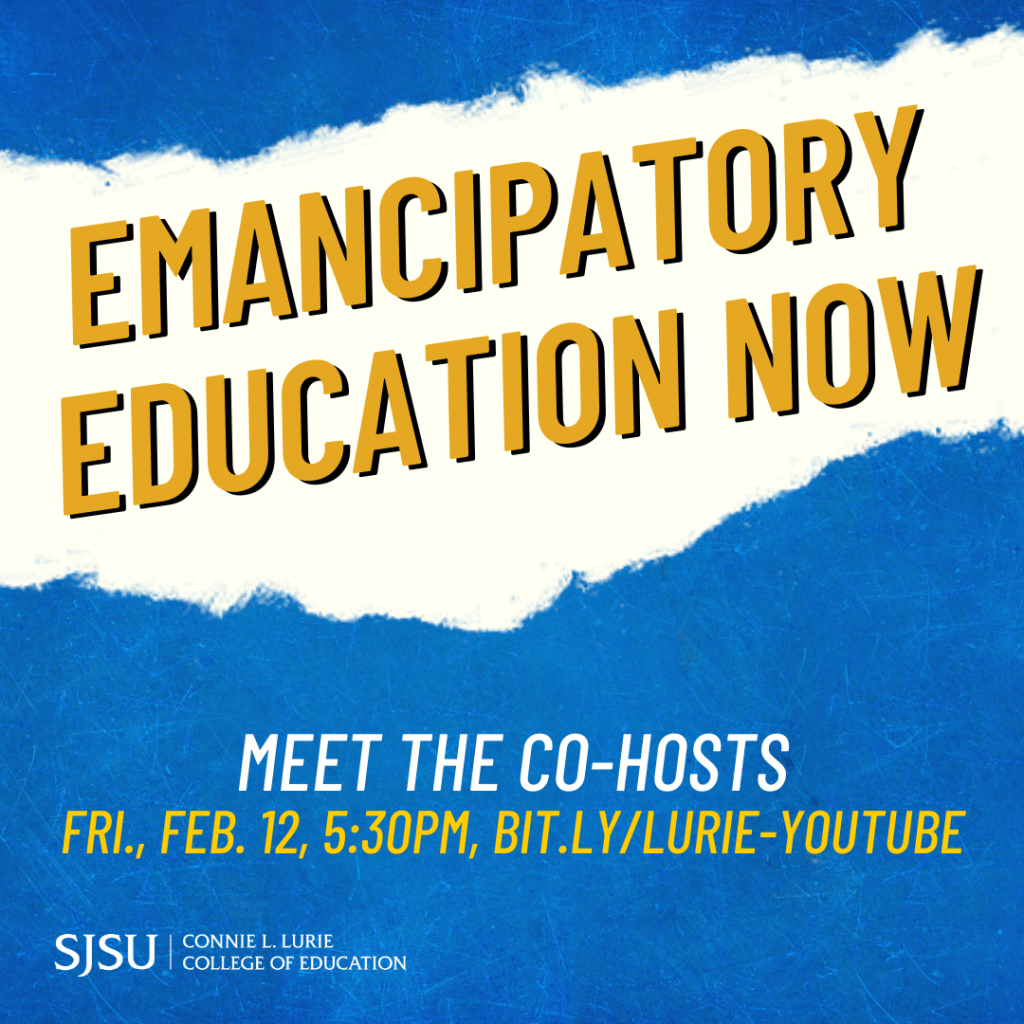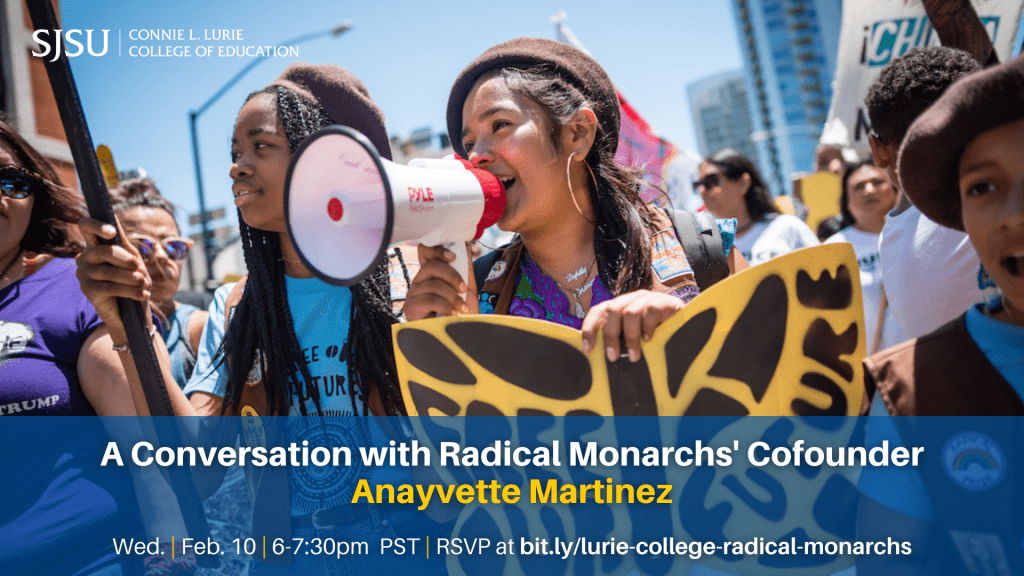Emancipatory Education Now is a student-led initiative at the SJSU Lurie College of Education that examines what emancipatory education – the critical evaluation of the systems and structures of oppression that maintain the status quo in our educational institutions – looks like in today’s society and advocates for the expansion of emancipatory education research, policies, and practices.
Our co-hosts for the Spring 2021 semester are:
- Abby Almerido – Graduate student, Educational Leadership
- Aminah Sheikh – Undergraduate student, Communicative Disorders & Sciences
- Ana Isabel Hahs – Graduate and credential student, Teacher Education
- Vaishnavi Sunkari – Undergraduate student, Child & Adolescent Development, Public Health
- Victor Calvillo Chavez – Graduate student, Counselor Education
In this episode, Ana leads a dialogue around antiracist education. The co-hosts shared their insights framed by questions such as:
- What was your initial reaction to the articles and the video? Did anything surprise you?
- How would you define antiracist education?
- What do you think are antiracist strategies for teachers? Do you agree with the ones presented in the video?
- The first article discusses the need to go beyond ethnic studies courses and include anti-racist education in all subjects. How do you think schools and districts can accomplish this?
- The second article discusses Trump-era policies that sought to prevent schools from teaching critical race theory and federally funded agencies from offering diversity training. While this is no longer an issue under the Biden administration, should we be concerned about such things happening in the future? What do you think is the likelihood of a future administration trying to enact such policies, and is there anything we can do about it in the meantime?
- Can you identify any challenges to implementing strategies for antiracist education? How can we overcome these?
- Why is antiracist education important to you? Why do you think it’s important that schools commit to antiracist education?
after reading the articles “California schools, universities condemn anti-Asian attacks, offer support to students” by Carolyn Jones and Ashley Smith and “Diversity Work, Interrupted” by Colleen Flaherty and watching the video “6 Ways to be an Antiracist Educator” by Edutopia.
This episode’s call to action: Watch the video “Six Ways to be an Antiracist Educator” and try to implement at least one of those strategies in your classroom. Additionally, since many of these ideas are applicable beyond the classroom, think about what it would look like for you to implement such practices in your daily life. What can you do to combat racism in your community?
Additional Antiracism and Racial Justice resources are available on the Lurie College website at sjsu.edu/education/community/antiracism. All of the recordings for this series are available at http://sjsu.edu/education/emancipatory-education-now
